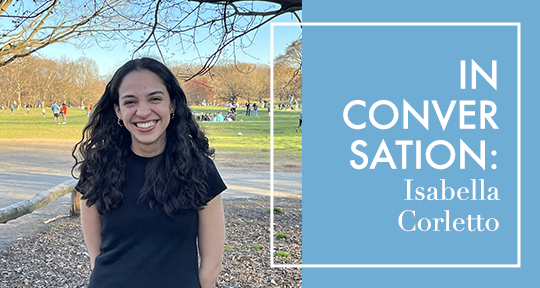Wearing a thin sweater, a colorful scarf, and a dazzling smile, Ana María welcomed us to her house in Zone 15, Guatemala City. Outside it was pouring, much like when she presented her famed Poemas de la izquierda erótica (Poems from the Erotic Left), forty-six years ago. She offered us tea—“To fight back the cold,” she said, still smiling—and told us we had to do the interview in the living room, not upstairs, because, “There are books scattered everywhere; imagine, a lifetime spent collecting books.” And, yes, one can only imagine.
Ana María Rodas, born in 1937, is a veteran Guatemalan poet, journalist, and teacher. Her career spans more than sixty years. She has released close to twenty books, and her work has been translated into English, German, and Italian. In 1990, she simultaneously won the poetry and short story categories of the Juegos Florales de México, Centroamérica y el Caribe. In 2000, she won the prestigious Miguel Ángel Asturias National Prize in Literature for her life’s work. She is also one of the leading figures of Guatemalan and Central American feminism. She has lived her whole life in Guatemala. And one cannot say this lightly. She grew up during the Jorge Ubico dictatorship (1931–1944), admired how the Guatemalan Revolution toppled Ubico in 1944, thrived during the so-called Ten Years of Spring, lamented the 1954 CIA-backed coup that removed the democratically elected, progressive president Jacobo Árbenz, and witnessed the atrocities of the Civil War (1960–1996). Many of her friends and colleagues were killed during that time. Alaíde Foppa, Irma Flaquer, and her dear friend, Luis de Lión, author of El tiempo principia en Xibalbá—considered one of the cornerstones of contemporary Central American literature. Even if she never picked up a rifle or joined the militarized resistance, her feminist struggle and intellectual defiance have influenced many generations.
She’s not a cynic, though. Or bitter. She’s hopeful. “Even though we have a brute for president,” she says, “I believe in resisting.” And resisting, Ana María has done.
But as much as Ana María is grandmotherly and warm, as much as she’s a jokester and amicable, she is also analytical, astute, and disarmingly agile. She’s a force of nature, a rising tide, and an unmovable object. Her poetry is sensitive, electric, and subversive.
READ MORE…





